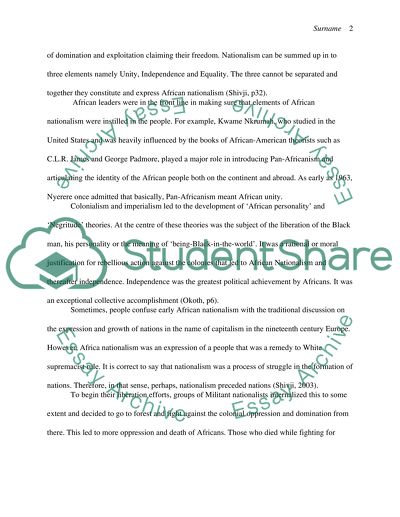Cite this document
(“The Rise of African Nationalism Essay Example | Topics and Well Written Essays - 1000 words”, n.d.)
The Rise of African Nationalism Essay Example | Topics and Well Written Essays - 1000 words. Retrieved from https://studentshare.org/history/1566409-the-rise-of-african-nationalism
The Rise of African Nationalism Essay Example | Topics and Well Written Essays - 1000 words. Retrieved from https://studentshare.org/history/1566409-the-rise-of-african-nationalism
(The Rise of African Nationalism Essay Example | Topics and Well Written Essays - 1000 Words)
The Rise of African Nationalism Essay Example | Topics and Well Written Essays - 1000 Words. https://studentshare.org/history/1566409-the-rise-of-african-nationalism.
The Rise of African Nationalism Essay Example | Topics and Well Written Essays - 1000 Words. https://studentshare.org/history/1566409-the-rise-of-african-nationalism.
“The Rise of African Nationalism Essay Example | Topics and Well Written Essays - 1000 Words”, n.d. https://studentshare.org/history/1566409-the-rise-of-african-nationalism.


